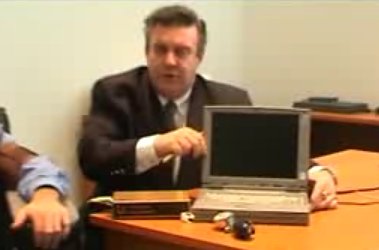Patrick T. Coffey
The American Polygraph Association (APA) published at p. 32 of the March/April 2011 issue of its bimensual
APA Magazine a letter censuring polygraph operator Patrick T. Coffey for providing inaccurate information in an application for renewal of his APA membership.
Regular readers of AntiPolygraph.org may recall that Mr. Coffey authored controversial posts on this message board that were later cited in an
article by
S.F. Weekly reporter Matt Smith. Coffey subsequently threatened me with a lawsuit for linking to this article in a blog post titled,
"Is Patrick T. Coffey Fit to Be Screening Police Applicants?" Coffey did not follow through with his threatened law suit, and it is AntiPolygraph.org's understanding that the San Francisco Police Department chose not to extend its contract with Coffey for the polygraph screening of applicants.
AntiPolygraph.org has received a copy of the APA's letter of censure, which is transcribed below and attached to this post in PDF format:
Quote:March 11, 2011
Patrick T. Coffey
533 Airport Blvd.
Suite 400
Burlingame, California 94010
via email: PTCoffey@mindspring.com Re: APA Grievance No. 127-10 Dear Mr. Coffey:
It is the decision of the Board of Directors of the American Polygraph Association (APA) to accept an agreed disposition between you and the APA Ethics and Grievance Committee (EGC) of Ethics Complaint No. 127-10 which was received by the APA on May 28, 2010. That agreed disposition is for the issuance of a public letter of censure to be published in an upcoming issue of the APA Magazine.
The complaint in this matter alleges that you failed to provide complete and accurate information when you re-applied for membership with the APA. Although you presented evidence that the inaccurate information provided on that re-application for membership was done unintentionally, the Committee determined, and the Board of Directors agree, that with the reasonable diligence expected of an applicant, you should have known that this information was inaccurate.
The APA depends on the diligence and candor of applicants to provide accurate information on applications. Without such diligence and candor, the APA cannot make informed decisions about whether an applicant meets the professional standards for membership.
Based on this agreed disposition and its adoption by the Board of Direcetors, it is directed that this letter be submitted for publication in the APA Magazine at the earliest available opportunity.
Sincerely,
Nathan J. Gordon
President, American Polygraph Association
bcc: William K. Teigen
Wade S. Church, Esq.









